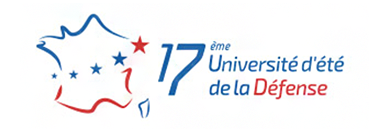ODAS
Popular wisdom reminds us we need to give ourselves the means to fulfill our ambitions, at the risk of being presumptuous and rapidly losing any credibility. What applies to men also applies to States; it is of course in the name of these “means”, as well as the “ways and means”, that companies working in the fields of Defense and Security are primarily concerned. Indeed, determining the ambition at a national level is first and foremost, and at all levels, the work of the government: political, geostrategic and diplomatic. Companies can contribute to it, but only to a certain extent in order to recall certain constants and constraints, whether they are human, technical, financial or regulated by a schedule. They are, on the other hand, an integral part of the achievement of this ambition.
Our country has always insisted on keeping its independence, but has also longed for cooperation and alliances, and has duly noted its future must involve Europe. Such an enumeration contains paradoxes: autonomy versus dependence, independence versus federalism, head-on competition versus co-production. These paradoxes clearly come to light through the hardships of the European political construction, but find the beginning of a solution (compromise?) in the industrial field through the implementation of joint projects and the creation of “joint ventures”, for example.
Within this frame, the production and placing on the market of security and armament equipment present unique characteristics: production in small amounts, advanced and even very advanced technology, manufacturing means usually localized nationwide, but also reliance on outsiders regarding certain components (as illustrated by the ITAR regulations) and diplomatic awareness in regards to the client state (hence the importance and necessity of the CIEEMG).
Furthermore, the national market is typically too small to justify the launch of new products and to allow for the sustainability of companies. This is why exporting is crucial, which has consequences at different levels:
Exporting in itself presents challenges, starting with the thorough knowledge of potential client states (their own culture as well as their genuine needs and already mastered skills, industrial, technological and operational implementations). Everyone knows the three main ways to negotiate contracts, with their advantages and drawbacks, their soundness or reversibility, their rigidness or flexibility. These lead to as many negotiation, provider and client tools for the two negotiating countries; they are not geographic, nor mutually exclusive or final in their methods which can be altered according to the needs. From a government to government contract (G to G) at one end of the spectrum to a direct contract with the manufacturers at the other, all while passing through a FMS-like procedure or its national versions as they have existed since 1947 in Canada, more recently in Italy and Spain, and since 1974 in France. Implementing contracts under private law operated under control and supervision of the State. Such is the function and role of ODAS for our country.
Our country has always insisted on keeping its independence, but has also longed for cooperation and alliances, and has duly noted its future must involve Europe. Such an enumeration contains paradoxes: autonomy versus dependence, independence versus federalism, head-on competition versus co-production. These paradoxes clearly come to light through the hardships of the European political construction, but find the beginning of a solution (compromise?) in the industrial field through the implementation of joint projects and the creation of “joint ventures”, for example.
Within this frame, the production and placing on the market of security and armament equipment present unique characteristics: production in small amounts, advanced and even very advanced technology, manufacturing means usually localized nationwide, but also reliance on outsiders regarding certain components (as illustrated by the ITAR regulations) and diplomatic awareness in regards to the client state (hence the importance and necessity of the CIEEMG).
Furthermore, the national market is typically too small to justify the launch of new products and to allow for the sustainability of companies. This is why exporting is crucial, which has consequences at different levels:
- Firstly, diplomatic, for exporting armament equipment is a prominently political gesture, committing the State to a long-term collaboration, and which can include other States, component or element providers.
- Secondly, industrial, for accounting for exportation from the very beginning of a project involves taking the potential clients’ expectations into account, as much in terms of performance as in terms of ownership costs, as well as more and more manufacturing and/or technological transfers.
- Thirdly, technological through the use of our BITD, which solely a successful company (and, thus, an exporting one) will be able to preserve and develop. This is even more important, due to the fact that its disappearance would mean losing autonomy. Our clients’ will to better their own industrial base through know-how transfers, mechanically pushes us to progress, in order to stay ahead and not create unnecessary competition.
Exporting in itself presents challenges, starting with the thorough knowledge of potential client states (their own culture as well as their genuine needs and already mastered skills, industrial, technological and operational implementations). Everyone knows the three main ways to negotiate contracts, with their advantages and drawbacks, their soundness or reversibility, their rigidness or flexibility. These lead to as many negotiation, provider and client tools for the two negotiating countries; they are not geographic, nor mutually exclusive or final in their methods which can be altered according to the needs. From a government to government contract (G to G) at one end of the spectrum to a direct contract with the manufacturers at the other, all while passing through a FMS-like procedure or its national versions as they have existed since 1947 in Canada, more recently in Italy and Spain, and since 1974 in France. Implementing contracts under private law operated under control and supervision of the State. Such is the function and role of ODAS for our country.



